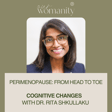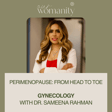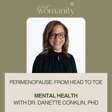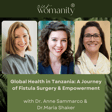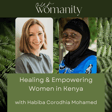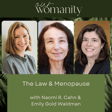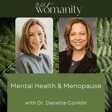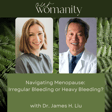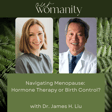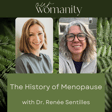
21. Latin American Culture & Menopause with Dr. Gabriela Alvarado
September is Perimenopause Awareness Month and October is Menopause Awareness Month!! And we are diving into all things perimenopause and menopause.
Did you know that in Costa Rica, hormone therapy for menopause is available through the Caja Costarricense de Seguro Social (CCSS) as part of its universal healthcare services? Women who are covered by the public healthcare system can access medical consultations and treatments, including hormone therapy, for menopausal symptoms. What a wonderful resource for women.
In this episode of Our Womanity with Dr. Rachel Pope, I am joined by Dr. Gabriela Alvarado to discuss perimenopause and menopause within the Latin American culture.
Dr. Gabriela Alvarado is a physician and an associate policy researcher at RAND who focuses on maternal health and sexual and reproductive health using a reproductive justice framework. Her research includes the use of innovative qualitative and community-centered approaches to understand and address drivers of disparities in different reproductive health outcomes such as contraceptive uptake, breastfeeding, maternal morbidity and mortality, maternal mental health, postpartum depression, access to health information (and misinformation), and access to abortion. Prior to RAND, she has worked in primary health care delivery, the health nonprofit sector, state government, and as a consultant for the Pan-American Health Organization.
She obtained her medical degree from the University of Costa Rica and has a masters in public health and anthropology from the London School of Hygiene and Tropical Medicine and Georgia State University. She completed her Ph.D. in policy analysis from the Pardee RAND Graduate School.
Featured in this episode:
- How different languages may not have a name for menopause or hot flashes
- Traditional roles for Latin American women
- Increase in various conditions once women move across the border to the US
- Lack of diversity in menopause research
Follow us on social media:
- Instagram: @drrpope
- TikTok: @vulvadoctor
- Twitter: @drrpope
Want more from Our Womanity?
If you enjoyed this episode of Our Womanity, please subscribe, rate, and leave a review. Your feedback helps us continue to bring you engaging and empowering content.
